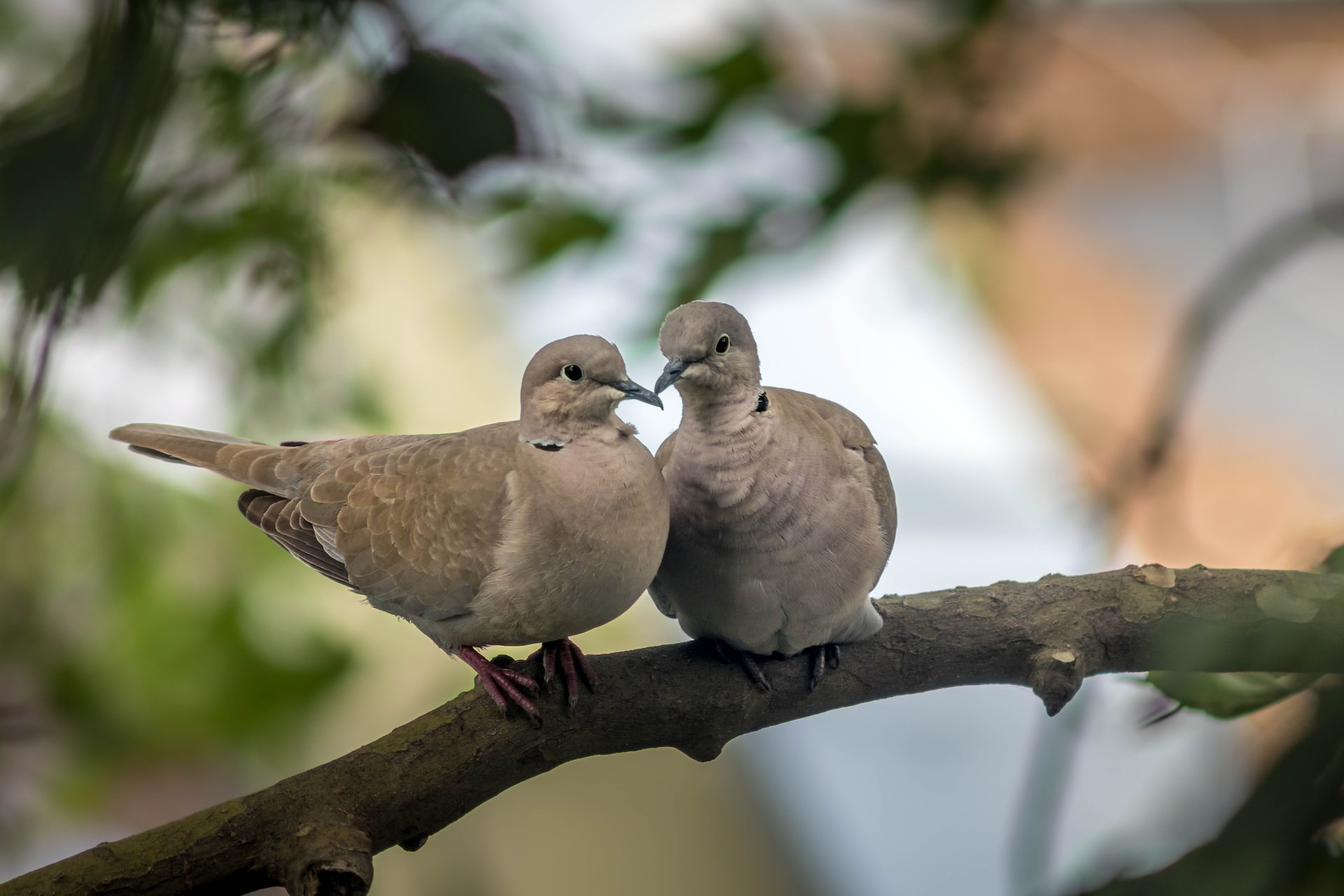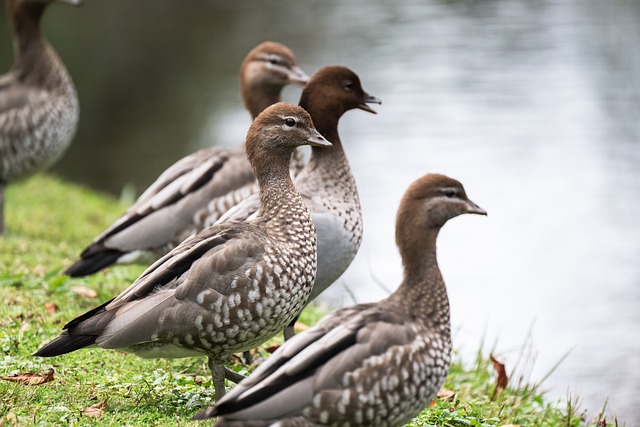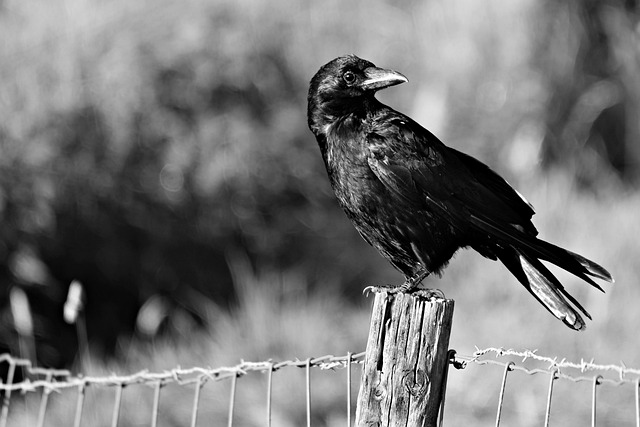Are doves smart? Doves are a common sight in cities and rural areas around the world. With their small rounded bodies, delicate features, and gentle cooing, they may seem simple or unintelligent compared to flashier birds like parrots. But appearances can be deceiving.
Assessing Dove Intelligence
When evaluating dove intelligence, it is important to first define what constitutes intelligence in birds.
Key Metrics of Bird Intelligence
Some key metrics used to measure intelligence across bird species include:
- Problem-solving abilities: Applying logic to new situations and navigating challenges or obstacles to obtain food, shelter, etc. Smarter birds can solve more complex puzzles.
- Communication complexity: The variety of sounds, calls, and behaviors used to convey different messages. More intelligent birds tend to have more advanced communication.
- Tool use: The ability to use tools like small sticks or rocks to access food or accomplish tasks. This demonstrates an understanding of objects for functional use.
- Self-recognition: Being able to recognize oneself in a mirror to some degree. This suggests self-awareness is linked to intelligence.
Using criteria like these, scientists are able to compare levels of intelligence between bird species. When evaluated against these kinds of metrics, doves demonstrate notable cognitive abilities.
Doves’ Cognitive Capabilities
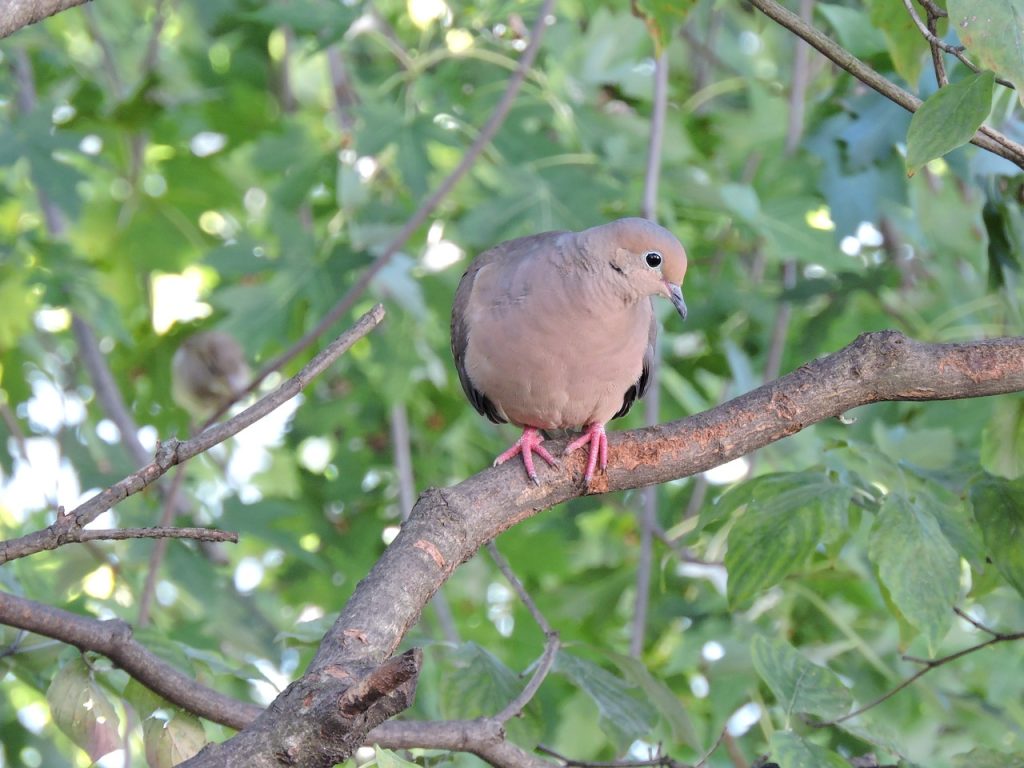
While less studied than genius birds like crows or parrots, doves exhibit some impressive mental talents:
- Problem-solving – Doves are resourceful when presented with puzzles to solve involving food rewards, though may struggle with more complex multi-step puzzles.
- Communication – Mourning doves especially have a wide vocabulary of vocalizations – up to 15 distinct sounds – to signal various messages.
- Self-recognition – Multiple experiments indicate doves can recognize themselves in mirrors, suggesting self-awareness.
- Adaptability – Doves readily flourish close to human activity in cities by exploiting new shelter and food opportunities. This shows behavioral adaptability.
So while they may not match a crow tackling a puzzle box, doves have strong cognitive skills relative to their circumstances and environment.
Dove Brain Structure and Function
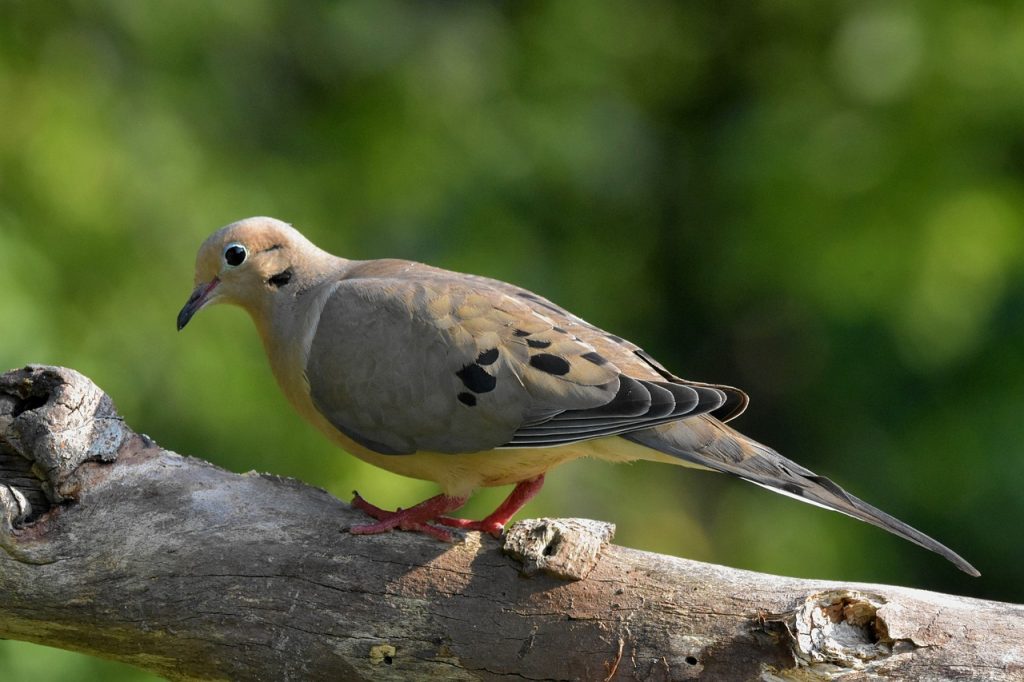
Dove intelligence is enabled by well-developed brains that confer mental talents suited to their natural history as a prey species.
Dove Brain Size
Dove’s brains are fairly sizable relative to body mass compared to other bird species. Measurements of the brain-to-body mass ratio – used as a marker of intelligence across species – place doves above chickens, turkeys, and pheasants in relative brain size.
The Eurasian collared dove has the largest absolute brain size among doves, though the common ground dove has the highest brain/body weight ratio. But while physical brain size certainly contributes, the structure and functioning of dove brains underlie much of their intelligence.
Regions Related to Intelligence
Mapping of dove brains reveals enlarged regions associated with higher cognition compared to many birds:
- Cerebrum – The large forebrain integrates sensory input, directs movement, governs instinctual behaviors, and enables learning. Enlarged in doves compared to chickens.
- Wulst – Linked to sensory processing, analysis, and visual memory. More prominent in mourning doves.
Well-developed sensory input, processing, and memory regions allow doves to capably navigate environments and recall food locations and safety threats.
In terms of higher intelligence, the nidopallium caudolateral (NCL) may play a pivotal role. The NCL handles executive functions like decision-making and flexible behavior and is most enlarged in the highest functioning birds like parrots and crows. Studies show the NCL is also relatively large in doves compared to chickens, suggesting more advanced cognitive processing.
Compares dove brain components to other bird species:
| Species | Cerebrum Size | Wulst Size | NCL Size |
|---|---|---|---|
| Rock Pigeon | Medium | Small | Medium |
| Mourning Dove | Medium | Large | Medium |
| Chicken | Small | Small | Small |
So while dove brains are much smaller than primate brains, regions vital for sensory integration, decision-making, and flexible behaviors are well-developed compared to species considered less intelligent. This brain composition enables notable cognitive capacities.
Survival Advantages of Dove Smarts
The mental abilities of doves like problem-solving and communication confer key survival advantages:
Finding Food
Doves employ good visual memory in navigating environments and recalling productive feeding sites, even years later. Studies found migrating doves returned to identical fruiting trees annually as food sources. Their long-term memory and ability to recognize locations assist in securing nourishment.
Doves also show resourcefulness in getting food in new scenarios, like using parked cars to crack hard seeds under tires. Such opportunistic tool use illustrates their cognitive flexibility.
Evading Predators
Doves avoid threats using fast reaction times informed by observational learning. Young doves sensitively absorb parental alarm calls for predators, engraving these threats into memory to later inform their own survival reactions.
When threatened, mourning doves can make over 15 distinct vocalizations to signal varying risk levels to others. The ability to communicate different warnings helps the flock survive.
Selecting Partners
Forming monogamous pairs for reproduction is essential for doves. Their coordinated courtship rituals, ability to recognize individual mates and sharing of incubation duties all demand advanced social awareness and bonding. This suggests emotive capacity beyond basic instincts seen in less intelligent species.
In these ways, dove intelligence confers advantages in securing food, safety, and reproductive success. Their cognitive abilities are well tuned to niche needs as a small prey species.
How Smart Are Doves Compared to Other Birds?
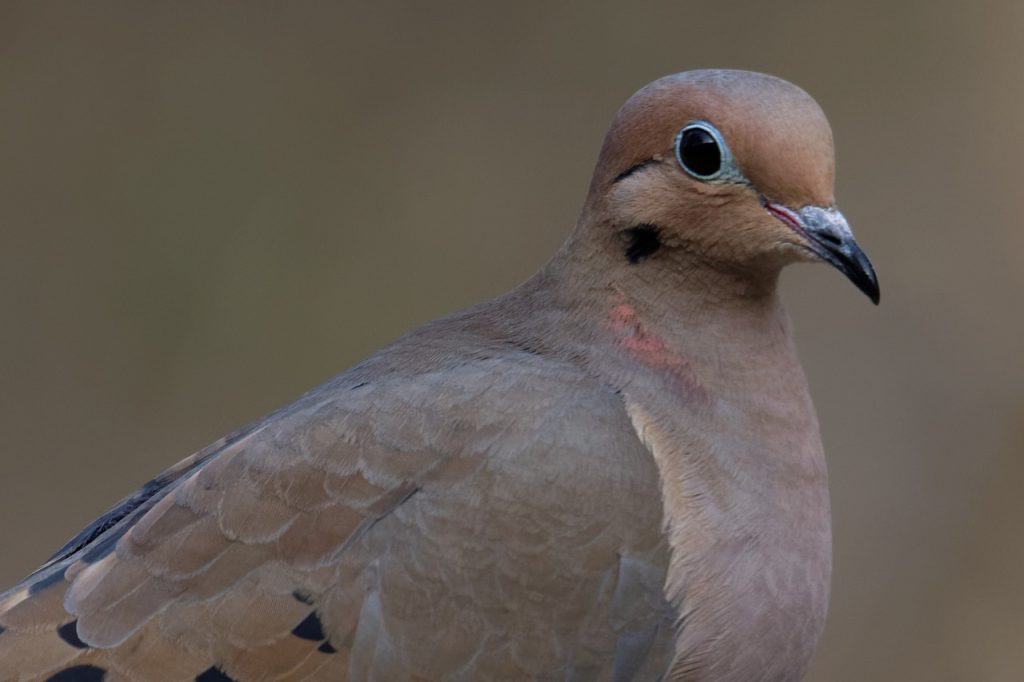
While doves display notable intelligence, how do they compare relative to other birds? Evaluating corvids and parrots provides useful benchmarks.
Corvid Comparison
Corvids like crows and ravens top the avian IQ spectrum, with an almost primate-like intelligence. They exhibit exceptional problem-solving, tool use, communication, and social behaviors. Compared to corvids, doves have:
- Narrower behavioral complexity: Doves display intelligent behaviors but with less variety in problem-solving, tool use, and other metrics.
- Less social coordination: Large corvid flocks demonstrate coordinated hunting, food caching, roosting, and sibling cooperation unmatched by doves.
- Inferior observational learning: Corvids outperform doves in quickly picking up new complex skills through observation alone to exploit opportunities.
So while doves have strong intelligence for their niche, corvids show far more explosive flexibility and social coordination.
Parrot Comparison
Like corvids, parrots demonstrate top-tier avian intelligence, particularly in communication, comprehension, and bonding behaviors. Relative to these vocal mimics, doves generally have:
- Less vocal learning ability: Parrots mimic complex novel sounds easily. Doves innately develop a more limited (albeit complex) set of callback sounds.
- Reduced social bonding cues: Parrots have enormous visual/behavioral vocabulary to communicate bonding states. Doves likely have enough to coordinate pair-bonding but far less than those highly social hookbills.
- Less evidence for advanced reasoning: Tests show parrots can infer abstract concepts, form arguments, and critically reason at least a modest degree. Doves have not evidenced this level of abstract analysis.
So parrots also outshine doves in areas like reasoning capacity and social hierarchy communication. But for their niche, doves seem well endowed.
In summary, doves eclipse some birds like pheasants in smarts but predictably fall short of elite avian problem solvers like corvids and parrots. Their intelligence aligns well with ecological demand.
Conclusion
For too long the intellectual abilities of doves may have been under-appreciated due to their unassuming nature around humans. But a closer look reveals notable cognitive capacities well-tuned to their needs as a prey species.
Evaluated against metrics like problem-solving, tool use, and self-recognition, doves demonstrate higher intelligence compared to species of similar size and niche. Regions of their brains enabling executive function also suggest advanced information processing relative to their brains’ modest size.
This intelligence confers key survival benefits helping doves find ample nutrition, evade predators, and select reproductive mates. So while doves’ smarts may seem humble compared to genius birds like crows, they are in fact perfectly adapted to enable success within their niche across environments worldwide.
So the next time you see a common city dove deftly navigating streets and structures, recognize that within its small head lies a remarkably capable mind that has enabled this bird to thrive since the days of the dinosaurs. Their intelligence is easy to underestimate but served doves exceptionally well across the millennia.
Frequently Asked Questions (FAQs) About Dove Intelligence
Still, have questions about just how smart doves are compared to other birds? Here are answers to 10 commonly asked questions:
How smart are doves compared to chickens?
Doves demonstrate greater intelligence than domestic chickens in areas like communication, problem-solving ability, observational learning, predator evasion, and adaptability to new environments. While chickens have shown some cognitive capacity exceeding expectations, doves appear to have more developed brains for sensory processing, decision-making, and flexible behavior.
Can doves solve problems?
Yes, doves exhibit decent problem-solving abilities, especially where food rewards are concerned. When presented with puzzles involving multiple steps to retrieve food, rock pigeons perseveringly tried solving them. While they may struggle with as complex multi-step puzzles as some birds can solve, doves appear reasonably resourceful foragers. Their opportunistic tool use like cracking seeds under car tires also shows cognitive flexibility.
Are doves capable of self-recognition?
Research suggests they are. Scientists have performed mirror tests with birds where a colored dot is placed on the bird and their reaction to their mirror reflection is observed. Both mourning doves and rock pigeons responded to the mirror by noticeably pecking at the marked spot on themselves rather than just attacking their reflection. This kind of self-directed behavior upon seeing their altered image indicates self-awareness.
How many sounds can a mourning dove make?
Mourning doves possess an impressive repertoire of over 15 distinct vocalizations ranging from alarm calls to breeding coos. Their wide vocabulary allows specific communication of different threats from predators like hawks vs humans. It also enables conveying subtle variations in courtship signals, hunger levels of nestlings, and warnings broadcast to their flock. This supports advanced communication compared to species like chickens.
Can doves mimic sounds and human speech like parrots?
No, doves are among bird species that lack the vocal learning ability to enable vocal sound mimicry. Unlike parrots and songbirds that can copy complex novel sounds or speech, doves can only make the limited though adaptive set of calls and coos they innately develop. However, their vocalizations still demonstrate an advanced communication system compared to less intelligent galliform birds.
Do doves have good memories?
Evidence shows doves have excellent long-term visual memory enabling them to recognize and relocate productive feeding spots over vast distances and even years later. Homing pigeons have famously demonstrated this navigational memory and mapping prowess over hundreds of miles. Even small bands of migrating Eurasian collared doves precisely returned to fruit trees year after year nearly 4000 miles away, indicating exceptional recall. Their strong memory provides survival and reproductive advantages.
What birds are smarter than doves?
Corvids like crows and ravens demonstrate the most explosive problem-solving capacity, social coordination, tool-making proficiency, and other metrics associated with extreme avian intelligence. Parrots also exceed doves with brains tuned for vocal mimicry, abstract concept manipulation, and social hierarchy communication. But within ecological contexts, mourning doves present advanced intelligence compared to birds like chickens, turkeys, and pheasants.
Are doves smarter than pigeons?
Rock pigeons are a type of dove, so they share similar intelligence. Other doves like mourning doves show some indications of more developed brains than members of the pigeon genetic clan in regions enabling sensory processing and decision making. But in general, pigeons demonstrate the same traits associated with dove intelligence like observational learning, self-recognition, communication complexity, and flexibility. Overall dove species share comparable intelligence.
Why are doves so intelligent compared to their body size?
Due to their small size and status as prey, doves benefit from cognitive capacities enabling them to find ample food while avoiding predation in order to reproduce successfully. Natural selection likely favored problem-solving skills, observational learning, location memory, threat avoidance behaviors, and advanced communication over time in doves. Their developed sensory integration, decision-making, and flexible behavior brain regions evolved relative to body size since these provided key survival and breeding advantages.
How smart are doves compared to blue jays?
While blue jays rank quite highly in avian intelligence, they do not match the absolute mental capacity of family Corvidae genius birds like crows when it comes to complex multi-step problem-solving and social coordination. In some aspects like observational learning, doves likely compare reasonably to jays. But overall corvid family members will outperform doves in most metrics of intelligence testing. However, for their niche as prey birds, doves present extremely well-developed cognitive abilities that enable ecological success.

